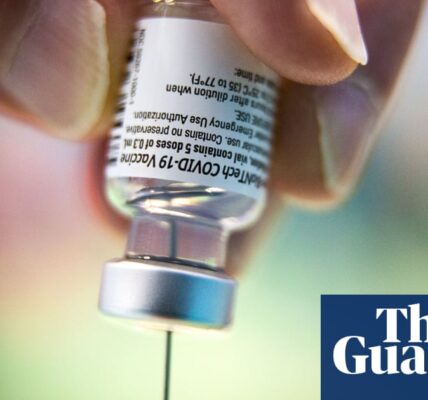A clinical trial for an HIV vaccine in Africa has been stopped due to unsatisfactory early results.
The initial experiment in Africa utilizing a duo of vaccines to combat HIV has been ceased after scientists determined it was ineffective.
The PrEPVacc study evaluated the efficacy of vaccines on a group of 1,500 individuals between the ages of 18 and 40 in Uganda, Tanzania, and South Africa.
The trial, led by African scientists, commenced in December 2020 but was halted last month following an interim assessment. The conclusive findings are anticipated to be released in late 2024.
The testing of a pre-exposure prophylaxis pill in conjunction with vaccine trials will proceed.
Dr Eugene Ruzagira, director of the PrEPVacc trial at the Uganda Virus Research Institute (UVRI) and assistant professor of epidemiology at the London School of Hygiene & Tropical Medicine, has announced that the administration of vaccinations to trial participants has been halted. This decision was made by an independent data-monitoring committee after analyzing the collected data and determining that there is minimal evidence to support the effectiveness of the tested vaccines in reducing the risk of acquiring HIV.
The PrEPVacc studies, conducted by African scientists with assistance from European researchers, examined two different combinations of HIV in an effort to determine their effectiveness in preventing infection among high-risk populations. The trials were supported by a €15m (£12.8m) grant from the European & Developing Countries Clinical Trials Partnership.

Professor Jonathan Weber, a sponsor of the trial from Imperial College London, stated that clinical trials are necessary because there are unknowns that need to be addressed. It was crucial to determine if the combination vaccine regimens in PrEPVacc, which have been in development for 20 years, should be dismissed or further explored as a means of preventing HIV.
As we anticipate the final outcomes and examination of each product, I am confident that our temporary findings put an end to the discussion about potential HIV vaccines for this generation.
In South Africa, prior attempts to evaluate the sole vaccine that had demonstrated effectiveness against HIV, known as RV144 and created in Thailand, were halted in February 2020 due to preliminary findings indicating it was not effective.
According to Prof Pontiano Kaleebu, the chief investigator of PrEPVacc at UVRI, the development of a successful vaccine to protect against HIV infection is a crucial objective for Africa.
He expressed the need for increased urgency in achieving this goal, especially since there are currently no HIV vaccines being tested for effectiveness anywhere in the world.
“We have made significant progress in our efforts to prevent HIV, but it is crucial that we continue to explore new vaccine strategies and advancements in technology to continue moving forward.”
There are approximately 39 million individuals globally who have HIV, with over 25 million residing in sub-Saharan Africa.
At a conference on HIV in Zimbabwe, Ruzagira expressed his optimism. He stated, “The obstacles in the scientific field are great, but I have immense confidence that an HIV vaccine will eventually be created.”
From 2003 to 2006, the RV144 vaccine underwent testing in Thailand and was found to decrease infection rates by approximately 33% after three years.
Source: theguardian.com



